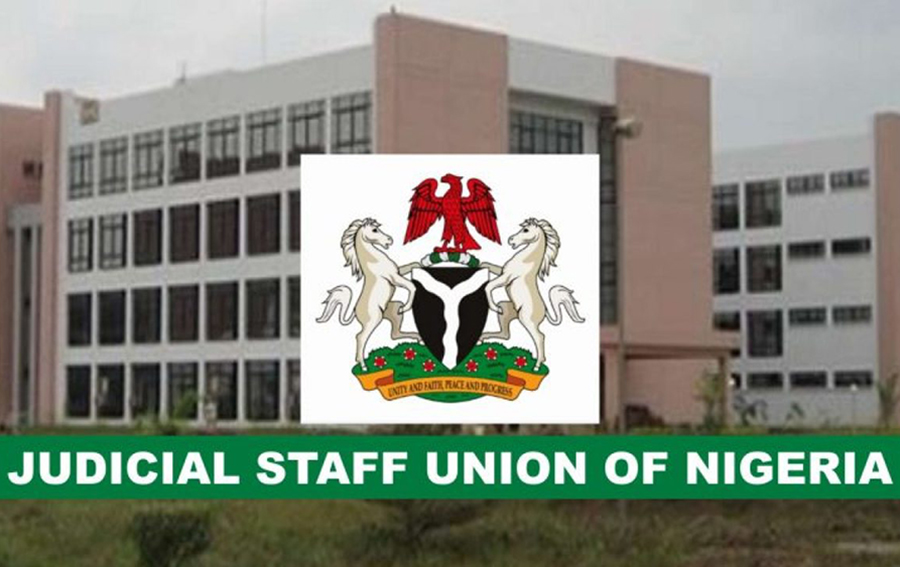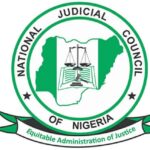The latest strike by the Judicial Staff Union of Nigeria (JUSUN) has been a long-drawn battle for judicial autonomy after it rescinded its initial attempt in 2020.
JUSUN had on April 6 commenced the strike after it issued a statement through its General Secretary, I.M Adetola dated April 1, 2021 calling on its members to “shut down courts/departments in your states until further notice from the National Secretariat of JUSUN in Abuja.”
- Gunmen abduct Nasarawa lawmaker’s brother
- Insecurity: Involve citizens in search for solution, Anyim tells Buhari
The union said its action followed the end of its 21 days notice given to the state governments on March 13 on the implementation of financial autonomy for the judiciary.
The union and governors of the 36 states, who are to implement the constitutional provision, have been locked in a legal battle over the mode of the implementation.
The Presidency’s intervention in 2020 through the instrumentality of the Executive Order 10 intensified the controversy.
JUSUN relies on Section 6(1) of the Nigerian Constitution, 1999, which reads: “The judicial powers of the Federation shall be vested in the courts to which this section relates, being courts established for the Federation.”
The union also named Item 21(e) of the Third Schedule of the constitution which provides that the National Judicial Council shall have power to “collect, control and disburse all moneys, capital and recurrent, for the judiciary.”
It further says it is relying on Section 121(3) of the constitution which states that “any amount standing to the credit of the judiciary in the Consolidated Revenue Fund of the State shall be paid directly to the heads of the courts concerned.”
Court judgement
Two separate judgements were delivered by the Federal High Court which upheld the provision of the constitution, while nullifying the piecemeal allocation of funds to the judiciary by the executive arm of government for being unconstitutional.
To facilitate the speedy implementation of the constitutional provision, President Muhammadu Buhari on May 22, 2020 signed Executive Order 10 for financial autonomy of state judiciary and legislature as part of the report of the Presidential Implementation Committee.
The President said he relied on sections 5 and 121(3) of the Nigerian Constitution 1999, adding that the orders which will be implemented across the states, would make them independent and more accountable in line with the PIC report.
The office of the Attorney General of the Federation, Abubakar Malami (SAN) in a statement explaining the order said it provides for direct deduction and payment of funds standing to the credit of the state judiciary.
“That the Accountant General of the Federation shall by this Order and such any other Orders, Regulations or Guidelines as may be issued by the Attorney General of the Federation and Minister of Justice, authorize the deduction from source in the course of Federation Accounts Allocation from money allocated to any state of the Federation that fails to release allocation meant for the state legislature and state judiciary in line with the financial autonomy guaranteed by Section 121(3) of the Constitution of the Federal Republic of Nigeria 1999 (As Amended),” the statement read.
Strike rages on
As JUSUN’s strike rages on, the union informed the Chief Justice of Nigeria, Justice Tanko Muhammad, on April 22 that it will not call off the strike unless the governors show commitment towards the full implementation of the autonomy by setting up certain modalities.
They also demanded that the Accountant General of the Federation goes ahead to deduct from source and pay to the NJC monthly federal allocation for the various heads of courts in line with Section 162(9) of the Nigerian Constitution, 1999.
Some of the governors have said the provision of the constitution as it relates to the autonomy for the judiciary is already in place in their states, but others are yet to apply the provision.
The Nigerian Governor’s Forum (NGF) chairman, Governor Kayode Fayemi of Ekiti State, had in June announced that NGF has agreed with the federal government to postpone the implementation of the Executive Order until the constitutional issues surrounding it are ironed out.
In September 2002, the governors, approached the Supreme Court in line with Section 232(1) of the Constitution to demand that the apex court declare that the presidential executive order violates sections 6 and 81(3), and Item 21(e) of the Third Schedule to the Nigerian Constitution 1999, which they maintained obligated the federal government with the “responsibility for funding all capital and recurrent expenditure of the High Courts, Sharia Courts of Appeal and Customary Courts of Appeal of the states of the Federation of Nigeria being Courts created under Section 6 of the Constitution of the Federal Republic of Nigeria.”
Each of the Attorneys General of the states said their state governments had expended total sums in funding capital and recurrent expenditure of the state High Court and Customary Court of Appeal from 5th May, 1999 to 31st January, 2020.
The states further contended that the federal government, which will be represented by the Attorney General of the Federation has the constitutional responsibility to fund the recurrent and capital expenditure of the High Courts, Sharia Courts of Appeal and Customary Courts of Appeal of the states.
Lagos lawyer dissatisfied with call-off
Meanwhile, a Lagos lawyer, Ebun-Olu Adegboruwa (SAN), has expressed dissatisfaction with the partial call-off of strike by the Lagos Chapter of JUSUN, insisting that it was unacceptable since the strike has wide support including from the federal government.
For his part, Michael Ogunsakin Esq has appealed to JUSUN to call off the strike in the interest of litigants seeking justice. He said he has clients remanded in prison custody for “a minor offence whose fate are yet to be determined.
Another lawyer, Temitayo Amao Esq begged both the government and union to dialogue on the issue before it gets out of hand. He decried the effects of the strike on litigants, courts and the economy of the country.
Amao noted that the litigants are experiencing the worst challenge in this period, saying criminal matters had delayed the freedom of some persons in the correctional centres.
A civil society executive, Joseph Otteh said the situation presents an open ticket for human rights violations, overcrowded cells and the public health risk.
As the various parties continue to seek way out of the impasse, what is left to be seen is whether the federal government would proceed to begin the deductions from source with the governors still unable to fully implement the provision, or the matter will be resolved by other political means.

 Join Daily Trust WhatsApp Community For Quick Access To News and Happenings Around You.
Join Daily Trust WhatsApp Community For Quick Access To News and Happenings Around You.


